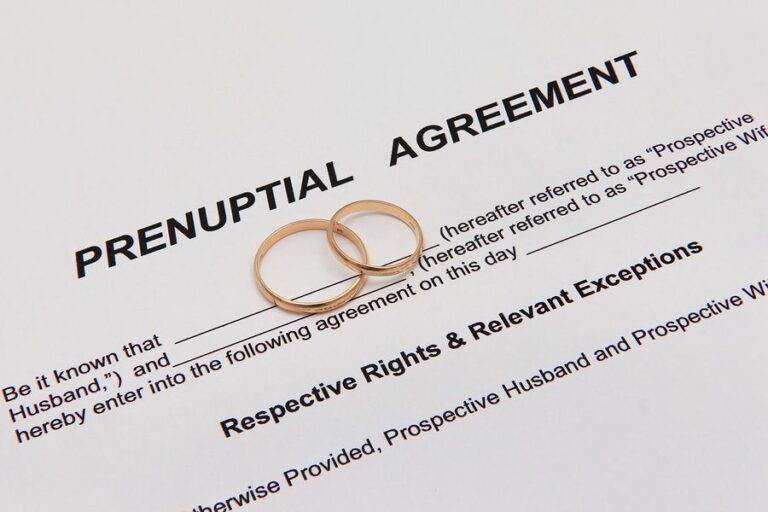

30+
Years of Experience, delivering proven results you can trust
Happy Clients, who have gained peace of mind and legal confidence

Your Rights, Protected. Your Future Secured.
Gain peace of mind knowing our skilled attorneys are safeguarding your interests every step of the way.




Safeguarding your Interests, EVERY STEP.

30+
Years of Experience
Solved for Peace of Mind
5000+
Clients Served
Receive the legal support you deserve from a team that prioritizes your success. With a history of proven results, we’re here to defend your rights and secure the best possible outcomes for you. Count on our experience to guide you smoothly through even the most challenging legal situations.

— Our LEGAL TEAM —
Your Guide Through Complex Legal Systems and Regulations

— Attorney—
Bobbie Young, RN. Esq.

— Family Law Paralegal—
Brisa Lumbreras

— Family Law Paralegal—
Exly Caceres

— Executive Assistant—
Maria Avila

with over
of our cases leading to favorable outcomes, you can trust our skilled attorneys to deliver results. we’re committed to providing the dedicated, client-centered support you need to achieve your legal goals.
Rest easy knowing our dedicated legal team is here to provide reliable advice and solutions, giving you the peace of mind you deserve.

Get clear, practical advice to understand your rights and confidently make well-informed choices.

Rely on our committed courtroom representation, focused on safeguarding your interests and securing favorable outcomes.

Have your documents carefully prepared and reviewed to protect your legal status and avoid potential challenges.

Receive customized assistance for your business, from legal structuring to compliance, to ensure efficient and successful operations.
— Practice Area —

Personal Injury Law
If you’ve been injured due to someone else’s negligence, it’s essential to seek legal representation to protect your rights. At Bobbie Young Law, we provide clear, practical guidance to help you navigate the complexities of personal injury cases, from car accidents to slip and fall claims. Having an experienced attorney ensures that you receive the compensation you deserve for medical bills, lost wages, and emotional suffering.

Family Law
Family law matters, such as divorce, child custody, and paternity, can be emotionally draining and legally challenging. At Bobbie Young Law, we offer strong advocacy in court to protect your rights and achieve the best possible outcome for your family. Consulting with an attorney is crucial to ensure your interests are fully represented, helping you make informed decisions and secure a fair resolution.
Our team of skilled attorneys is dedicated to providing you with the legal service you’ve been searching for all this time.
Expert Legal Advice, Tailored to Your Needs
— Frequently Asked Questions —
Personal injury cases encompass a wide range of legal disputes where an individual suffers harm due to the negligence, recklessness, or intentional actions of another party.
Common types of personal injury cases include motor vehicle accidents, such as car, truck, motorcycle, and pedestrian accidents, which often result from distracted driving, speeding, or driving under the influence.
Slip and fall accidents, a subset of premises liability, occur when property owners fail to maintain safe conditions, leading to injuries caused by hazards like wet floors, uneven surfaces, or poor lighting.
Medical malpractice cases arise when healthcare professionals provide substandard care, resulting in patient harm through misdiagnosis, surgical errors, or medication mistakes.
Product liability claims involve injuries caused by defective or unsafe products, including malfunctioning machinery, dangerous pharmaceuticals, or faulty consumer goods.
Workplace accidents, often covered by workers’ compensation, may also lead to personal injury claims if a third party’s negligence contributed to the injury.
Additionally, personal injury law covers dog bites, nursing home abuse, wrongful death, and catastrophic injuries such as traumatic brain injuries or spinal cord damage.
In all these cases, the injured party may seek compensation for medical expenses, lost wages, pain and suffering, and other damages incurred due to the accident.
Determining whether you have a valid personal injury case depends on several key factors. First, you must establish that another party was negligent or at fault for your injuries.
This means proving that they had a duty of care, they breached that duty, and their actions directly caused your harm. Additionally, you must have suffered actual damages, such as medical expenses, lost wages, pain and suffering, or emotional distress.
Evidence, including medical records, witness statements, photos, and accident reports, can strengthen your claim. If liability is clear and your damages are significant, you may have a strong case.
However, state laws, statutes of limitations, and comparative negligence rules may also impact your ability to file a claim.
Consulting with a personal injury attorney can help assess your case’s validity and guide you on the best course of action.
Immediately after an accident, your priority should be ensuring safety and assessing the situation. First, check yourself and others for injuries and call emergency services if anyone is hurt. If it is safe to do so, move to a secure location to avoid further danger, but do not leave the scene.
Turn on your hazard lights to alert other drivers. Contact the police to report the accident, as a formal report may be necessary for insurance claims. Exchange contact and insurance details with the other parties involved, including names, phone numbers, and license plate numbers. If possible, take photos of the accident scene, vehicle damage, and any relevant road conditions for documentation. Gather witness statements if there are any bystanders.
Even if you feel fine, consider seeking medical attention, as some injuries may not be immediately apparent. Finally, inform your insurance company about the accident and follow their guidance on filing a claim. Remaining calm and methodical in handling the situation will help ensure your safety and protect your legal and financial interests.
Family Law
The difference between legal custody and physical custody lies in the rights and responsibilities each type of custody grants to a parent or guardian in a child custody arrangement.
- Sole Legal Custody: Only one parent has the authority to make major decisions.
- Joint Legal Custody: Both parents share the decision-making responsibilities.
- Sole Physical Custody: The child primarily resides with one parent, while the other may have visitation rights.
- Joint Physical Custody: The child spends significant time with both parents.
If a parent refuses to pay child support, they may face serious legal consequences, including wage garnishment, suspension of their driver’s license, tax refund interception, and even contempt of court charges that could lead to fines or jail time. The court and child support enforcement agencies have various tools to ensure compliance, such as withholding income directly from the parent’s paycheck or placing liens on their property. Additionally, unpaid child support accumulates as debt, which cannot typically be discharged through bankruptcy.
In extreme cases, persistent refusal to pay can result in criminal charges, leading to further penalties. The purpose of these enforcement measures is to ensure that the child’s financial needs are met, as child support is considered a legal and moral obligation.
Child support is typically calculated based on a combination of factors, including each parent’s income, the number of children involved, and the amount of time each parent spends with the child. Many states or countries use a specific formula or guideline that considers the non-custodial parent’s earnings, the custodial parent’s financial situation, and the child’s needs, such as healthcare, education, and daily living expenses. Courts may also take into account additional factors like childcare costs, medical insurance, and special needs expenses.
In some cases, deviations from standard calculations may be made if there are extraordinary circumstances, such as high medical costs or a significant disparity in parental income. The goal of child support is to ensure that the child’s financial well-being is maintained and that both parents contribute fairly to their upbringing.
GOODTrustindex verifies that the original source of the review is Google. Good Attorney she is efficient and she got the job done. I appreciate her work and all she has done for my familyPosted onTrustindex verifies that the original source of the review is Google. While shopping for a family attorney I was given Bobbie’s information. It was stated she was a beast in the courtroom 6 years ago. However, the beast must have dwindled down because it was the WORSE consultation I have ever had. She was late. She did a phone conversation while she was driving. She kept cutting me off. She did not seem like she wanted to work. I guess you get what you pay for. I chose to use someone else because I didn’t get the feeling she was capable.Posted onTrustindex verifies that the original source of the review is Google. As a fellow family law attorney, I have had the privilege of knowing Bobbie and working with her in family law since 2008. I have found Bobbie to be an excellent and incredible advocate, who cares passionately for her clients. She is also my go-to CPS guru, and I can always ask her questions and/or send folks her way and know they are in trusted hands. Bobbie has no idea I am writing this review for her. Anyone working in the CPS arena is faced with difficult and agonizing cases, with individuals who are often angry and upset. In my opinion, a potential client would be privileged and blessed to have Bobbie's skill, compassion, and determination. She is an example to us all.Posted onTrustindex verifies that the original source of the review is Google. This lawyer sold my kids and I out and took my money bad lawyerPosted onTrustindex verifies that the original source of the review is Google. This lady don’t sleep on her job when it come to kids, I lost my kids due to my own lack of responsibility.... She fought for my kids all the way to the end ......Posted onTrustindex verifies that the original source of the review is Google. Mrs. Young helped me with a multi-state custody issue. She worked hard on my behalf and the results were favorable. I have a large bill, but attorneys aren’t cheap. Thanks, Bobbie.Posted onTrustindex verifies that the original source of the review is Google. She's good


